#anti capitalism
Text
“Surge in antisemitism”
I have worn my magen david and not had a single comment, from anyone— not Muslims, Christians, people wearing kufiyahs. I’ve been to protests and demonstrations, and never been more welcomed or felt so safe. Palestinians have hugged me, have shared food with me. Leftists have constantly held space to listen and to learn, to make room for changes and growth.
But you know what I have experienced? Jewish Zionists screaming at me, calling me shameful, Jewish Zionists on the internet debating the legitimacy of my Jewishness. I’ve been called kapo, k*ke and told I’d be r*ped by Hamas. I’ve had the most vitriol from ZIONISTS. I’ve faced the most antisemitism from Zionist Jews, and that makes me so inconceivably sad. I’ve been looked down upon and cursed at.
Zionism is not Judaism. Never will be.
#judaism#jumblr#antisemitism#anti capitalism#anti imperialism#israel#jews for palestine#jewish thought#jewish#jewblr
10K notes
·
View notes
Text
Happy May-Day to the punks, commies, and anarchists celebrating!
288 notes
·
View notes
Text
Hey so... anyone talking about the fact that the labour day protest in Stuttgart could walk like 50m until the cops started pepper spraying and beating us because some of us wore masks? No? Ok then.
#stuttgart#germany#german#communist#communism#labour day#labor day#working class#palestine#<- bc that was also a big part of the protest#anti capitalism#antifa#antifascist#anti zionisim#marxism#socialism#just tagging everything this protest was about dont mind me
65 notes
·
View notes
Photo
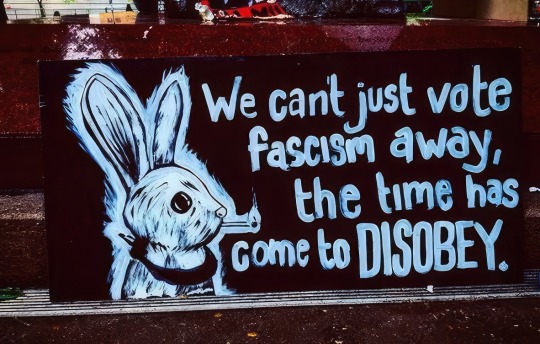
#anarchism#anarchist#antifascist#anticapitalist#anticapitalism#antifascism#anarchopunk#anarchocommunism#antifascista#anti fascist#anti fascism#anti-fascist#anti-fascism#anti-capitalist#anti capitalist#anti-capitalism#anti capitalism#anarcho communism#anarcho-communism#anarcho-communist#anarcho communist
43 notes
·
View notes
Photo

#anarchism#anarchist#antifascist#anticapitalist#anticapitalism#antifascism#anarchopunk#anarchocommunism#antifascista#anti fascist#anti fascism#anti-fascist#anti-fascism#anti-capitalist#anti capitalist#anti-capitalism#anti capitalism#anarcho communism#anarcho-communism#anarcho-communist#anarcho communist
22 notes
·
View notes
Photo
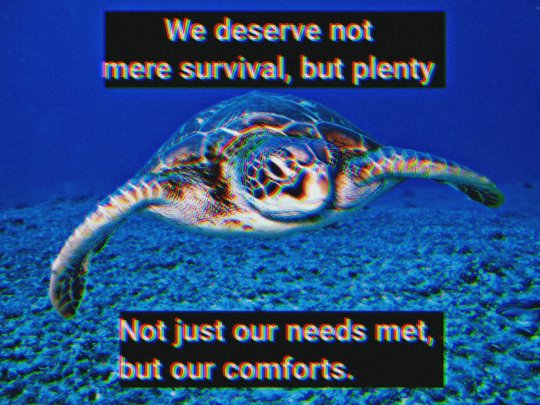
#anarchism#anarchist#antifascist#anticapitalist#anticapitalism#antifascism#anarchopunk#anarchocommunism#antifascista#anti fascist#anti fascism#anti-fascist#anti-fascism#anti-capitalist#anti capitalist#anti-capitalism#anti capitalism#anarcho communism#anarcho-communism#anarcho-communist#anarcho communist
32 notes
·
View notes
Text
The fallacy in Zionists accusations of Hamas’ violence is that the Zionist State enforces pacifism upon the framework of their own interests; they will claim peacefulness, kindness, tolerance only when those they oppress are beaten into the Earth and silent. That the retaliation against a near century of brutality is an unspeakable evil; not the brutality of destroying Palestinian villages, agriculture, families, religious institutions. Israel will dehumanise Palestinians down to removing their autonomy, from freedom of movement, to expressions of anger and mourning. Palestinians have the right to reclaim their land and by any means necessary, fot pacifism is just oppressive tool.
“Violence is a cleansing force. It frees the colonized man from his inferiority complex. It makes him fearless, and restores his self respect.” Frantz Fanon, The Wretched of the Earth. Read our free PDF resource of this pivotal anti-Capitalist work, today.
Hamas exist because of what Zionist settlers did to Palestine. Hamas exist because of Israel. Palestinians are robbed of their autonomy from the very day they are born purely because they are Palestinian— the nemesis of the Zionist identity. Palestinians have always been, and always will be.
#palestinians#palestine#jumblr#zionism#it’s never to late to deconstruct zionism#zionism is the antithesis of judaism#anti zionist jews for palestine#viva palestina libre#anti capitalism#anti imperialism#free palestine#jewish thought
193 notes
·
View notes
Photo

#anarchism#anarchist#antifascist#anticapitalist#anticapitalism#antifascism#anarchopunk#anarchocommunism#antifascista#anti fascist#anti fascism#anti-fascist#anti-fascism#anti-capitalist#anti capitalist#anti-capitalism#anti capitalism#anarcho communism#anarcho-communism#anarcho-communist#anarcho communist
22 notes
·
View notes
Photo
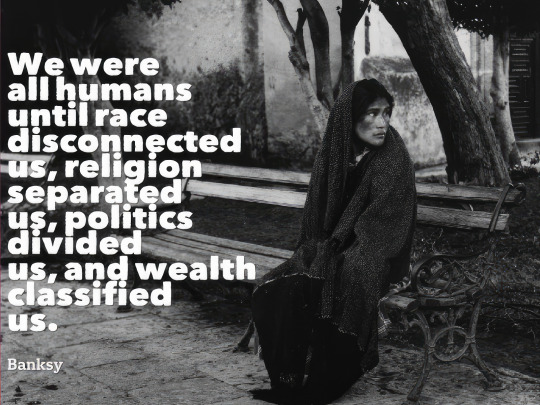
#anarchism#anarchist#antifascist#anticapitalist#anticapitalism#antifascism#anarchopunk#anarchocommunism#antifascista#anti fascist#anti fascism#anti-fascist#anti-fascism#anti-capitalist#anti capitalist#anti-capitalism#anti capitalism#anarcho communism#anarcho-communism#anarcho-communist#anarcho communist
11 notes
·
View notes
Photo

#anarchism#anarchist#antifascist#anticapitalist#anticapitalism#antifascism#anarchopunk#anarchocommunism#antifascista#anti fascist#anti fascism#anti-fascist#anti-fascism#anti-capitalist#anti capitalist#anti-capitalism#anti capitalism#anarcho communism#anarcho-communism#anarcho-communist#anarcho communist
53 notes
·
View notes
Note
What do you think of the term "personal property" as distinct from "private property?" I'm not sure how I feel about it because on one hand the people pushing for it often seem to be petty-burgeois opportunists who insist on the continuation of homeowning and such during socialism, but on the other hand some of the people opposing it seem to have read what Marx said about how all property borders will disappear on higher-stage communism and interpreted it as "REAL communists want to confiscate your toothbrush, which is why the USSR wasn't REAL communism."
I mean, if you want to read Marx, the Communist Manifesto is right there.
In this sense, the theory of the Communists may be summed up in the single sentence: Abolition of private property.
We Communists have been reproached with the desire of abolishing the right of personally acquiring property as the fruit of a man’s own labour, which property is alleged to be the groundwork of all personal freedom, activity and independence.
Hard-won, self-acquired, self-earned property! Do you mean the property of petty artisan and of the small peasant, a form of property that preceded the bourgeois form? There is no need to abolish that; the development of industry has to a great extent already destroyed it, and is still destroying it daily.
Or do you mean the modern bourgeois private property?
But does wage-labour create any property for the labourer? Not a bit. It creates capital, i.e., that kind of property which exploits wage-labour, and which cannot increase except upon condition of begetting a new supply of wage-labour for fresh exploitation. Property, in its present form, is based on the antagonism of capital and wage labour. Let us examine both sides of this antagonism.
To be a capitalist, is to have not only a purely personal, but a social status in production. Capital is a collective product, and only by the united action of many members, nay, in the last resort, only by the united action of all members of society, can it be set in motion.
Capital is therefore not only personal; it is a social power.
When, therefore, capital is converted into common property, into the property of all members of society, personal property is not thereby transformed into social property. It is only the social character of the property that is changed. It loses its class character.
What does it mean to own a home? Capitalism conflates home ownership with land ownership and with private ownership of the means of production. To the capitalists and their apologists, there is no difference between any of these, all of these should be commodified and treated the same under the law.
Is living in a home and being secure in your right to live in a home enough to own it? The capitalist would say no. Common law traditionally assigns three fundamental rights necessary for private ownership, referred to in the Latin as usus, fructus, and abusus. That is, the right to use it, the right to profit from it, and the right to abuse it.
To the capitalist, if you cannot rent your house out for profit, you do not own it. To the capitalist, if you cannot dismantle the house and sell it for scrap, you do not own it. If these so-called fundamental rights are abridged, then suddenly homeownership becomes impossible in the mind of a capitalist.
When it comes to land or homes, communism does not grant individuals the rights of fructus or abusus. Communism recognizes that these things have an existence beyond the individual, that though an individual may use them for a period, eventually they will be used by someone else. To continue the privatization of homes or land would be to stifle collectivization and maintain a sense of bourgeois individualism that communism should instead seek to eliminate.
To nationalise the land, in order to let it out in small plots to individuals or working men's societies, would, under a middle-class government, only engender a reckless competition among themselves and thus result in a progressive increase of "Rent" which, in its turn, would afford new facilities to the appropriators of feeding upon the producers.
[...]
I say on the contrary; the social movement will lead to this decision that the land can but be owned by the nation itself. To give up the soil to the hands of associated rural labourers, would be to surrender society to one exclusive class of producers.
The nationalisation of land will work a complete change in the relations between labour and capital, and finally, do away with the capitalist form of production, whether industrial or rural. Then class distinctions and privileges will disappear together with the economical basis upon which they rest. To live on other people's labour will become a thing of the past. There will be no longer any government or state power, distinct from society itself! Agriculture, mining, manufacture, in one word, all branches of production, will gradually be organised in the most adequate manner. National centralisation of the means of production will become the national basis of a society composed of associations of free and equal producers, carrying on the social business on a common and rational plan.
(Marx, The Nationalization of the Land, 1872)
The distortion of communistic abolition of property into such a complete dissolution of any and all forms of ownership no matter how personal has been around since Marx's own time. As he remarked in The German Ideology, when faced with Stirner's egoistic criticisms of communism:
When the narrow-minded bourgeois says to the communists: by abolishing property, i.e., my existence as a capitalist, as a landed proprietor, as a factory-owner, and your existence as workers, you abolish my individuality and your own; by making it impossible for me to exploit you, the workers, to rake in my profit, interest or rent, you make it impossible for me to exist as an individual. — When, therefore, the bourgeois tells the communists: by abolishing my existence as a bourgeois, you abolish my existence as an individual; when thus he identifies himself as a bourgeois with himself as an individual, one must, at least, recognise his frankness and shamelessness. For the bourgeois it is actually the case, he believes himself to be an individual only insofar as he is a bourgeois.
But when the theoreticians of the bourgeoisie come forward and give a general expression to this assertion, when they equate the bourgeois’s property with individuality in theory as well and want to give a logical justification for this equation, then this nonsense begins to become solemn and holy.
Above “Stirner” refuted the communist abolition of private property by first transforming private property into “having” and then declaring the verb “to have” an indispensable word, an eternal truth, because even in communist society it could happen that Stirner will “have” a stomach-ache. In exactly the same way here his arguments regarding the impossibility of abolishing private property depend on his transforming private property into the concept of property, on exploiting the etymological connection between the words Eigentum and eigen and declaring the word eigen an eternal truth, because even under the communist system it could happen that a stomach-ache will be eigen to him. All this theoretical nonsense, which seeks refuge in etymology, would be impossible if the actual private property that the communists want to abolish had not been transformed into the abstract notion of “property”. This transformation, on the one hand, saves one the trouble of having to say anything, or even merely to know anything, about actual private property and, on the other hand, makes it easy to discover a contradiction in communism, since after the abolition of (actual) property it is, of course, easy to discover all sorts of things in communism which can be included in the concept “property”. In reality, of course, the situation is just the reverse. In reality I possess private property only insofar as I have something vendible, whereas what is peculiar to me [meine Eigenheit] may not be vendible at all. My frock-coat is private property for me only so long as I can barter, pawn or sell it, so long [as it] is [marketable]. If it loses that feature, if it becomes tattered, it can still have a number of features which make it valuable for me, it may even become a feature of me and turn me into a tatterdemalion. But no economist would think of classing it as my private property, since it does not enable me to command any, even the smallest, amount of other people’s labour. A lawyer, an ideologist of private property, could perhaps still indulge in such twaddle.
And to head off any notion that Marx had suddenly changed his mind at some point later in life, that the events of Paris or some other event might have convinced him that personal property should be abolished at "higher-stage" communism, here is Engels in Anti-Duhring explaining clearly what Marx's thoughts were on the subject:
Marx says: “It is the negation of negation. This re-establishes individual property, but on the basis of the acquisitions of the capitalist era, i.e., on co-operation of free workers and their possession in common of the land and of the means of production produced by labour. The transformation of scattered private property, arising from individual labour, into capitalist private property is, naturally, a process, incomparably more protracted, arduous, and difficult, than the transformation of capitalistic private property, already practically resting on socialised production, into socialised property.” [K. Marx, Das Kapital, p. 793.] That is all. The state of things brought about by the expropriation of the expropriators is therefore characterised as the re-establishment of individual property, but on the basis of the social ownership of the land and of the means of production produced by labour itself. To anyone who understands plain talk this means that social ownership extends to the land and the other means of production, and individual ownership to the products, that is, the articles of consumption. And in order to make the matter comprehensible even to children of six, Marx assumes on page 56 “a community of free individuals, carrying on their work with the means of production in common, in which the labour-power of all the different individuals is consciously applied as the combined labour-power of the community”, that is, a society organised on a socialist basis; and he continues: “The total product of our community is a social product. One portion serves as fresh means of production and remains social. But another portion is consumed by the members as means of subsistence. A distribution of this portion amongst them is consequently necessary.” And surely that is clear enough even for Herr Dühring, in spite of his having Hegel on his brain.
The property which is at once both individual and social, this confusing hybrid, this nonsense which necessarily springs from Hegelian dialectics, this nebulous world, this profound dialectical enigma, which Marx leaves his adepts to solve for themselves — is yet another free creation and imagination on the part of Herr Dühring.
There is no such "disappearance of property borders" in Marx's communism. At no stage of communism does Marx ever prescribe anything of the sort.
Private property, the social property that capitalism has already socialized by requiring the collective labor of the working class in order to maintain and make productive, will be expropriated from the capitalists and nationalized by the proletarian state to become the collective property of the working class.
Personal property, that portion of the produce of society that can be used only by individuals and that has no reason at all to be shared, will remain personal. You will not have to pass your plate around so that everyone can take a bite out of your food. You will not have to wear hand-me-down clothing. And you will not have to share your toothbrush.
22 notes
·
View notes
Photo
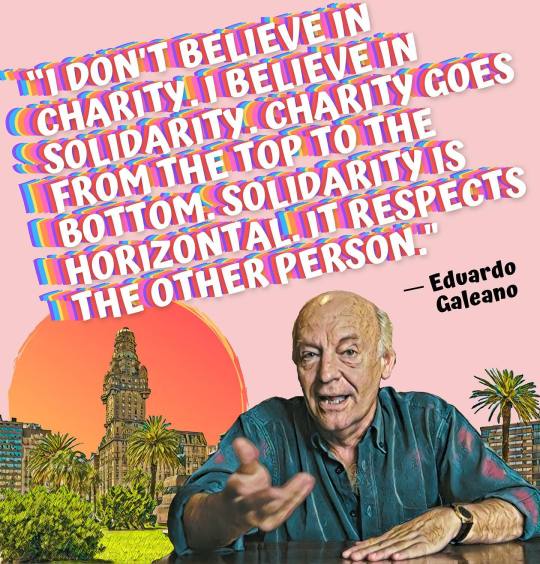
#anarchism#anarchist#antifascist#anticapitalist#anticapitalism#antifascism#anarchopunk#anarchocommunism#antifascista#anti fascist#anti fascism#anti-fascist#anti-fascism#anti-capitalist#anti capitalist#anti-capitalism#anti capitalism#anarcho communism#anarcho-communism#anarcho-communist#anarcho communist
27 notes
·
View notes
Text

Well well well 🍉
#anti right wing#antiright#antifacist#anti capitalism#antifascism#free palestine#free gaza#palestine#anti police
33 notes
·
View notes
Photo
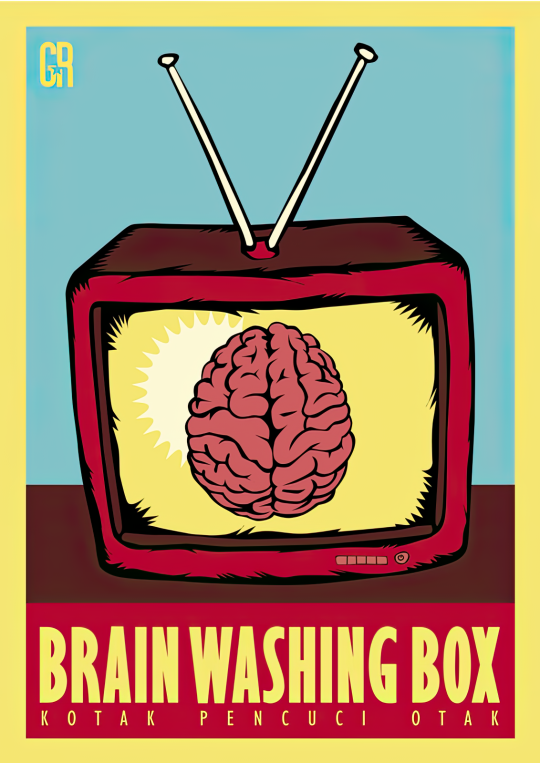
#anarchism#anarchist#antifascist#anticapitalist#anticapitalism#antifascism#anarchopunk#anarchocommunism#antifascista#anti fascist#anti fascism#anti-fascist#anti-fascism#anti-capitalist#anti capitalist#anti-capitalism#anti capitalism#anarcho communism#anarcho-communism#anarcho-communist#anarcho communist
13 notes
·
View notes
Photo
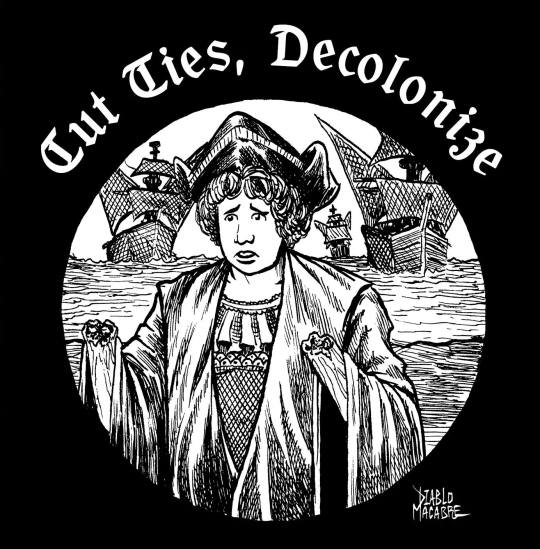
#anarchism#anarchist#antifascist#anticapitalist#anticapitalism#antifascism#anarchopunk#anarchocommunism#antifascista#anti fascist#anti fascism#anti-fascist#anti-fascism#anti-capitalist#anti capitalist#anti-capitalism#anti capitalism#anarcho communism#anarcho-communism#anarcho-communist#anarcho communist
23 notes
·
View notes
Photo
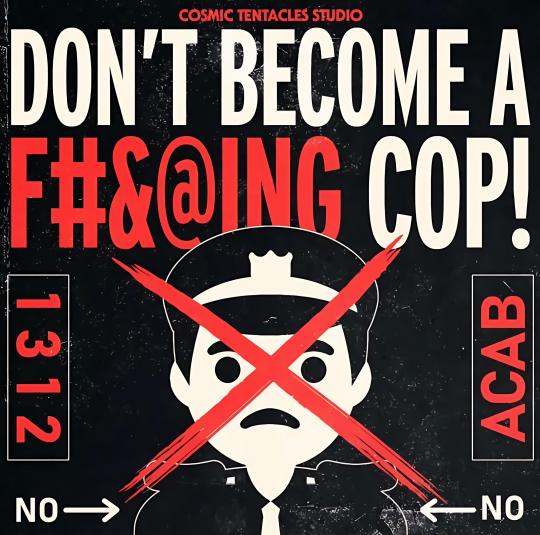
#anarchism#anarchist#antifascist#anticapitalist#anticapitalism#antifascism#anarchopunk#anarchocommunism#antifascista#anti fascist#anti fascism#anti-fascist#anti-fascism#anti-capitalist#anti capitalist#anti-capitalism#anti capitalism#anarcho communism#anarcho-communism#anarcho-communist#anarcho communist
32 notes
·
View notes